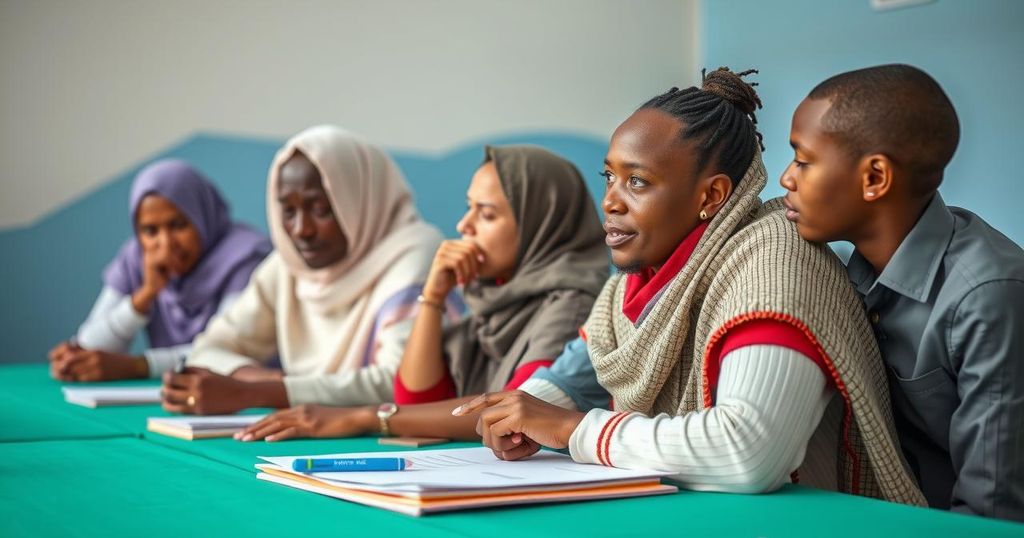The Italian Embassy in Somalia concluded a significant training program for Somali diplomats to prepare for the country’s non-permanent membership in the UN Security Council in the term 2025-2026. The program, funded by Italy, included sessions in Rome and Mogadishu, focusing on UN protocols and key international issues, with continued training planned into 2025.
The Italian Ambassador to Somalia, Pier Mario Daccò Coppi, met with President Hassan Scheik Mohamud in Mogadishu to mark the conclusion of the second session of the Training and Advisory Programme aimed at preparing Somalia for its upcoming non-permanent membership in the United Nations Security Council for the term 2025-2026. Sponsored by the Italian Ministry of Foreign Affairs and executed in collaboration with UN Institute for Training and Research (Unitar) and the Med-Or Foundation, the program aimed to enhance the capabilities of Somali diplomats and officials in understanding UN Security Council operational protocols.
During the meeting, President Mohamud expressed gratitude to Italy and acknowledged the Med-Or Foundation project coordinators for the valuable training that commenced with an initial session in Rome last November. The President highlighted the importance of the training in equipping Somali representatives with knowledge on vital geopolitical and international political matters relevant to their future role at the UN Security Council.
The Ambassador emphasized the high caliber of the experts who facilitated the sessions, underscoring their professionalism as key to the program’s success. Proposed by Marco Minniti, President of the Med-Or Foundation, and backed by the Italian Embassy in Mogadishu, the initiative is set to extend into the first part of 2025, offering further support to Somalia’s engagement in Security Council activities.
The Training and Advisory Programme for the Federal Government of Somalia is part of Italy’s efforts to support Somalia’s integration into international governance structures, particularly the United Nations Security Council. This training initiative not only aims to prepare Somali diplomats for their responsibilities but also to enhance their understanding of international relations and security matters, essential for effective participation in global discussions and decision-making processes.
In conclusion, the collaborative training initiative led by Italy emphasizes the importance of capacity-building for Somali diplomats as the nation prepares for its upcoming role on the UN Security Council. The ongoing efforts reflect a commitment to enhancing Somalia’s international presence and capabilities, reinforcing partnerships aimed at fostering stability and development in the region.
Original Source: ansabrasil.com.br







